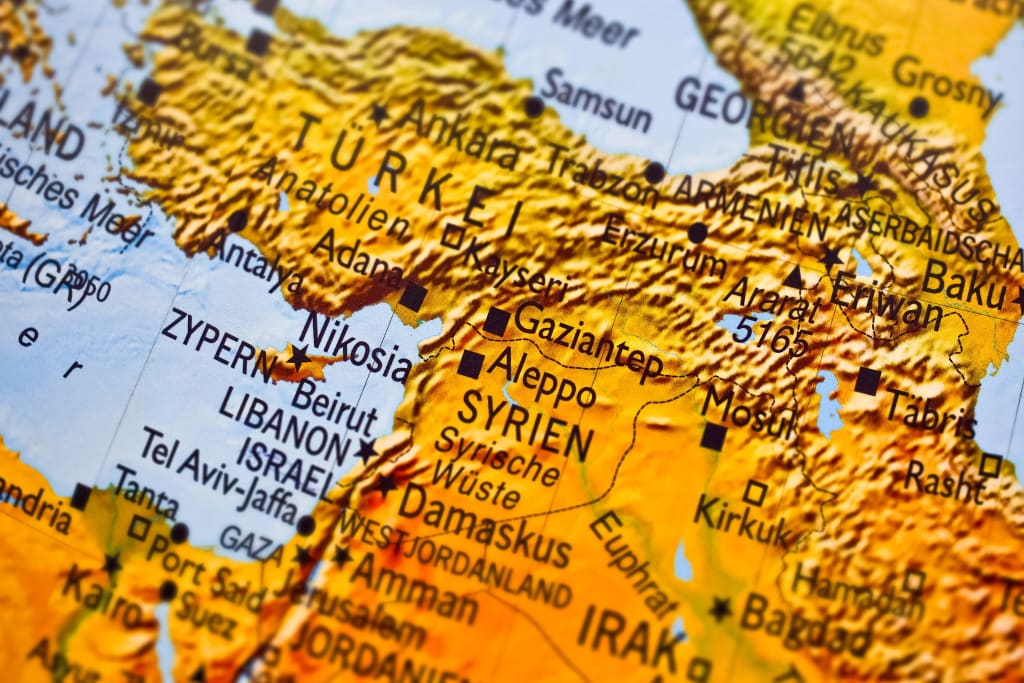Understanding the Eternal Conflict: Why the Middle East is Always at War
Delving into the Historical, Political, and Socioeconomic Factors Fueling Ongoing Warfare in the Region"

## Introduction
The Middle East, a region known for its rich history and cultural diversity, has unfortunately been associated with constant conflict and unrest for decades. The reasons behind these wars are highly complex, stretching back centuries and involving a multitude of factors - religious differences, historical grudges, economic tensions, and political disputes. This blog post aims to shed light on three key aspects that contribute to the unrest - the role of religion, the influence of foreign powers, and the struggle for resources.
## The Role of Religion
The Middle East is the birthplace of three of the world's major religions - Judaism, Christianity, and Islam. These religious differences have often been a source of conflict. The Israeli-Palestinian conflict, for instance, is rooted in religious and territorial disputes. The Sunni and Shia divide in Islam has also fueled conflict, as seen in Iraq and Yemen. These religious conflicts are often intertwined with political and economic issues, making them even more complex.
## The Influence of Foreign Powers
The Middle East, particularly its oil-rich nations, has long been a strategic interest for foreign powers. The Sykes-Picot Agreement of 1916, where Britain and France divided the Middle East into spheres of influence, set the stage for modern conflicts by creating artificial borders and igniting nationalist movements. More recently, the U.S. invasion of Iraq in 2003 and Russia's involvement in Syria have destabilized the region further and intensified the conflicts.
## The Struggle for Resources
The Middle East is rich in resources, particularly oil. This wealth has often been a source of conflict, both internally and externally. Internally, the unequal distribution of wealth has led to social unrest and resentment. Externally, the desire to control these resources has led to wars and foreign interventions. The Iran-Iraq War in the 1980s, for instance, was largely about control over the Shatt al-Arab waterway, a crucial route for oil exports.
## The Impact of Colonial Legacy
The colonial legacy of the Middle East has also played a significant role in shaping the region's conflict-ridden narrative. European powers, particularly Britain and France, carved up the region without much consideration for the ethnic, religious, and tribal affiliations of the local populace. The borders drawn up arbitrarily led to the creation of multi-ethnic and multi-religious states, which set the stage for internal conflict and civil strife.
## The Role of Nationalism
Nationalism has also contributed to the protracted conflict in the Middle East. The creation of Israel in 1948 and the subsequent displacement of Palestinians gave rise to Arab nationalism, which has been a source of tension and conflict in the region. At the same time, Kurdish nationalism has led to conflicts in Turkey, Iraq, and Syria, where the Kurdish minority has been fighting for autonomy or independence.
## The Influence of Ideology
The ideological battle between different forms of governance, particularly between secularism and Islamism, has been another source of conflict. The Iranian Revolution of 1979, which saw the establishment of an Islamic Republic in Iran, created a rift between the proponents of secular governance and those advocating for an Islamic state, contributing to regional tensions.
## Conclusion
In conclusion, the complexities of the Middle East's conflicts are deeply entrenched in a myriad of factors - historical, religious, political, and economic. The path to peace is fraught with challenges, but understanding these complexities is the first step in resolving them. The Middle East, with its rich history and vibrant cultures, deserves a future free from the shackles of perpetual conflict.





Comments
There are no comments for this story
Be the first to respond and start the conversation.